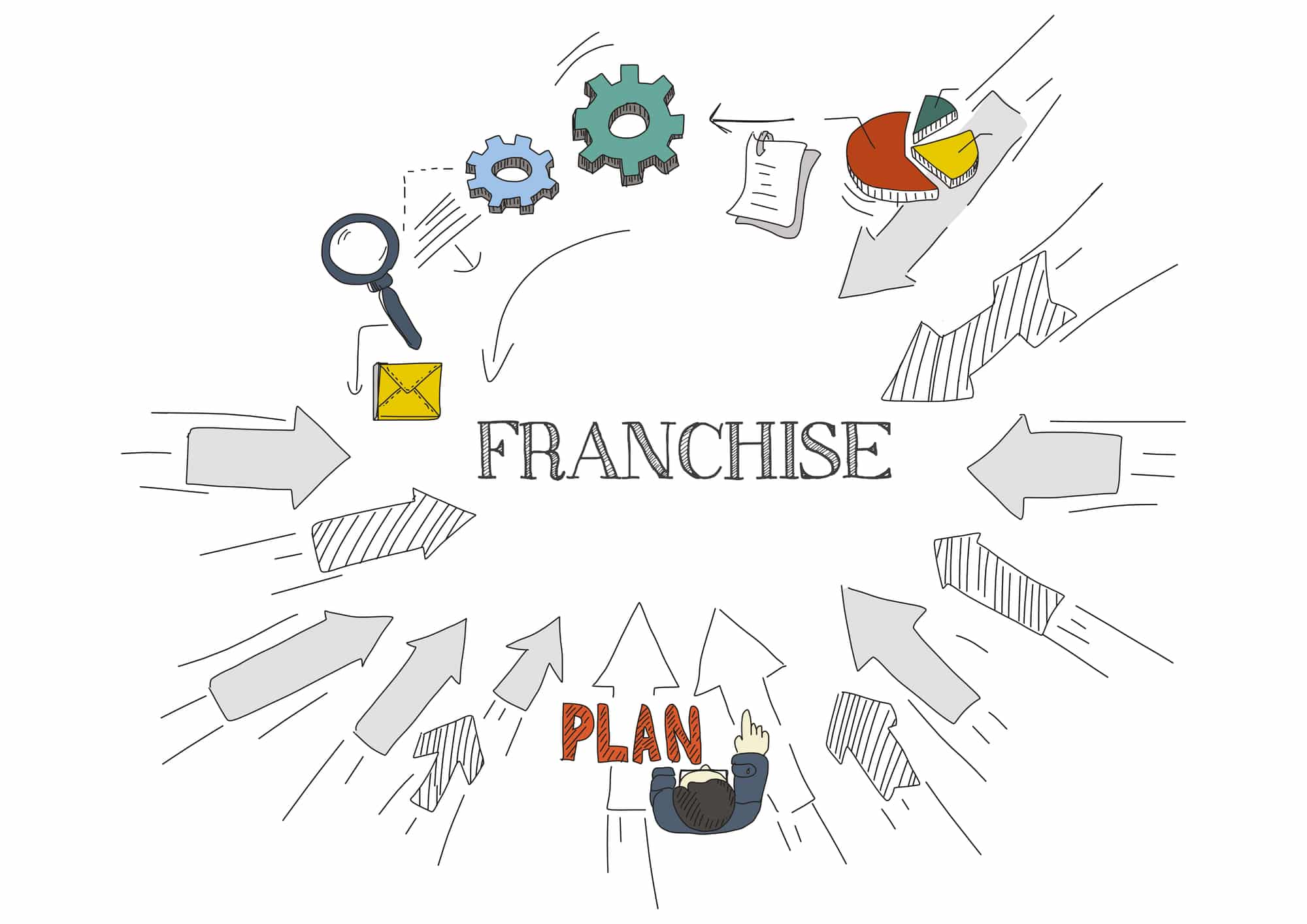How is Franchising a Form of Licensing?
A franchise is a type of license.
Although franchising and licensing are two different business relationships, a franchise cannot model an original business unless a franchisor grants a license to the franchisee to use its intellectual property. Accordingly, a franchise cannot exist without licensing and is, therefore, an example of this business model.
In this post, we will break down some of the differences between franchising and licensing—and how these two business forms are interrelated.
The Differences between Franchising and Licensing
Franchising and licensing are two business models in which a franchisor/owner sells the right to use an aspect of their original business to develop or expand a new business.
What is Franchising?
More specifically, franchising is a business model where a franchisor sells to a franchisee the right to operate a business or sell goods or services while utilizing the franchisor’s brand/trademark. The goal here is for the franchisee to duplicate the franchisor’s original business in an effort to expand their market.
What is Licensing?
Licensing is a business relationship where a licensor sells the rights to a licensee to use specific trademarks from their business brand.
Franchising vs. Licensing
The franchising and licensing model differ in the scope and operational requirements transferred to a new business.
- Scope: A franchise relationship is broader in scope than a licensing relationship. Under a franchise model, in addition to granting use of their trademark, the franchisor controls the business functions. Conversely, a licensing relationship is limited in scope to the transfer of specific trademarks to the licensee.
- Operational requirements: A franchisor controls how a franchise is operated, providing the equipment, training, and even hiring the staff, whereas a licensing arrangement does not allow for a licensor to control a licensee’s business operations.
These are just two ways in which franchising and licensing differ. However, despite these differences, it is still important to understand the specifics of how franchising and licensing are interrelated.
How Franchising is a Form of Licensing
Franchising is a form of licensing because this business model is an essential element of a franchise relationship.
A business arrangement must have the below elements to be considered a franchise:
- Trademark license: A franchisor must grant a franchisee the right to operate a business under their trademark.
- Fee payment: The franchisee must pay the franchisor an up-front fee to enter into the franchise arrangement and additional fees throughout the franchise relationship.
- Control: A franchisor must have some semblance of control over the franchisee’s business operations or help the franchisee with their business functions.
Accordingly, a franchisor must grant a franchisee use of their trademark license in operating the franchise. Much like a licensing arrangement, a franchisor can regulate or limit the extent to which the trademark is utilized. However, without this essential prong, a franchise does not exist.
If you need help starting a franchise or understanding how franchising and licensing are related, contact us for assistance!

